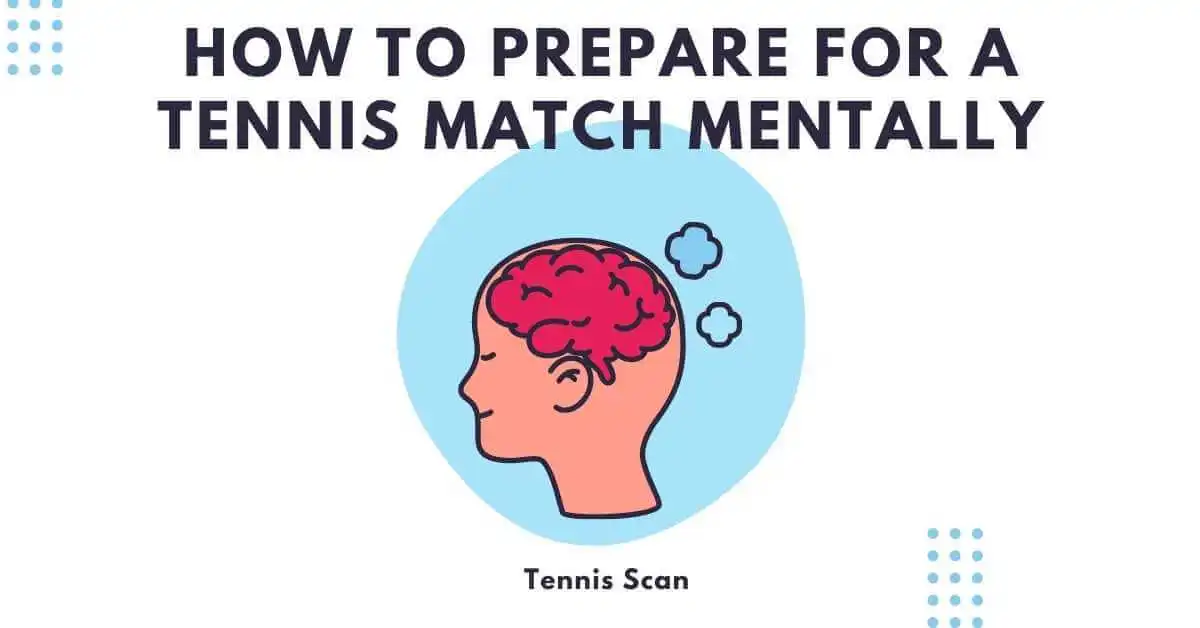Before a competition, most players can identify the factors that negatively affect them: you don’t want to be out in the sun too much, you want to make sure you get enough sleep but not too much, and you want to eat the right foods (now is not the time to start experimenting with food), you want to stick to your normal physical and mental routines, and you don’t want to make any significant changes to your game.
1: Strength is harmed by anxiety
Many elements, both psychologically and physically, influence a player’s strength on match day. Keeping your attention on a match is a never-ending process. Some players are nervous, players who are less nervous, and players who are in the middle.
Nerves affect each of these categories of players differently, necessitating a distinct coping method to get the desired result. Before the contest, players require techniques to aid concentration.
2: Nervousness before a match
Tennis players must be aware of their nervousness before a match. On a scale of 1 to 10, rate your anxiety levels before a match: 1 – no evident anxiousness, 10 – feeling utterly out of control. You don’t want to be a 10 because it would negatively impact your life, but you also don’t want to be a 1. A 1 may imply that you are not sufficiently enthused to participate in your match.
3: Interruptions
There are several distractions available before a match. Internal problems are the ones that cause the most concern and distress. These are the inner monologues you’re having. Your negative thoughts are a source of worry. It’s your negative thinking, such as “There’s no way I’m going to win today,” “I’m not going to be able to do this,” and “I’ll never be able to serve my second serve,” as well as “Should-haves” and “What-Ifs.” These increase anxiety to the point that you might not be able to play at all.
Related to What to Wear to a Tennis Match?
4: Routine for the match
A pre-performance ritual helps an athlete prepare for a tournament by allowing them to concentrate on the game. Imaging (which could include a technique, opposition, or court), positive self-talk, deep breathing, and muscle relaxation, among other things, can all be included. What goes into which routine before the routine is influenced by the individual’s level of anxiety and what works for them?
Positive and deliberate thinking is encouraged before rituals. When it comes to concentration, it’s either all or nothing. And concentrating on what you can’t achieve takes your attention away from your game and what you can do.
5: Hit Extra Serve Buckets
The word “serve” is the most crucial in the sentence “serve it out.” It will be simpler for you to complete matches if yours is better. The serve is the single stroke over which you have complete control and which can win you a point and you’ll have a chance to become nervous.
However, it can break down under duress, just like any other stroke, so train both your first and second serves equally. Nothing helps as much as a service winner at 5–4 in the third, so nothing hurts as much as a double mistake.
6: Prepare your mind and body together
The same conditions that lead players to break down physiologically are also causing them to break down mentally, according to research. Dr. Jim Loehr, the co-founder of the Human Performance Institute, adds, “You can suffocate because you’re not adequately hydrated or if you haven’t slept enough.” “You may appear to be choking, but there’s more to it than that.
If you’re not physically prepared for a match, you won’t be mentally prepared, and you’ll be more incredibly irritated.” So drink plenty of water and go to bed early; your brain will thank you just as much as your body.
7: Continue to ponder
Isn’t it true that the last thing an athlete should do when they’re in a tight place is worry about the work at hand? Attempting to clear your mind, on the other hand, may encourage negative thoughts to fill the void. Continue to think intelligently to push them back out.
“Your mind can be racing forward, so bring it back to the present moment,” Austin advises. “Consider what you’ll need to perform on the next point. Plan your serve, remind yourself to keep the ball deep, and consider how you want to move your competitor.”
Also read How to Win Doubles Tennis with a Weak Partner
8: Take pleasure in your success
Tennis players can rejoice after defeating a competitor when they win. However, the sport provides another benefit: the opportunity to overcome your fears and uncertainties. Too frequently, we only recall when we swallow, partly because “negative events imprint on our brains considerably more strongly than pleasant experiences,” as Guide puts it. When you win a close match, remember whatever you can from the experience for reference purposes. You’re no longer only a winner; you’re also a contender.
